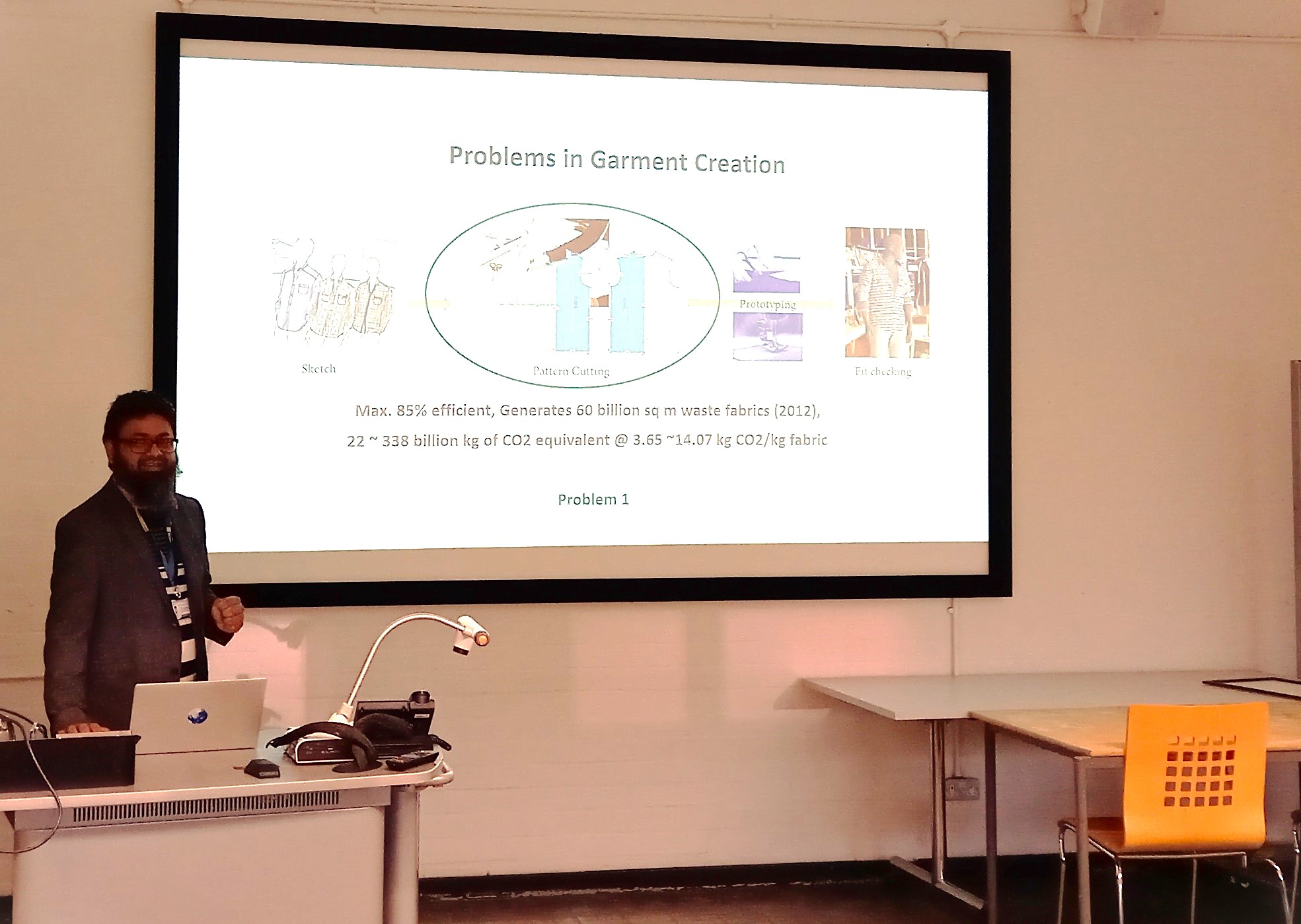Paper Development Workshop at AUST under CREATE Research Project

CREATE management committee has organized a paper development workshop on 18th February 2024 at Ahsanullah University of Science and Technology. The day-long workshop was conducted by Dr. Abu Sadat Muhammad Sayem, Fellow at Manchester Fashion Institute, Manchester Metropolitan University, UK, at the Vice Chancellor’s Conference room at AUST.
The workshop aimed to develop further ideas on the insights and data from the country-wide fieldwork by CREATE team on the pre-consumer textile waste qualities, handing and recycling actors in value chains as well as the environmental and social impact of textile waste recycling. Ideas that were critically evaluated are related to (i) high value addition by pre-consumer textile waste in unconventional sector, (ii) carbon footprint mapping of pre-consumer waste and competitiveness analysis by different recycling technologies; and (iii) motivation and challenges of recycling technology firm’s internationalization in the Global South.
The initial drafts were presented in the workshop by Prof. Dr. Muhammad Amanullah, Prof. S. M. Shafiul Alam, and Sarah Mirza. Dr. Abu Sadat commented on the drafts. Dr. Abu Sadat is also taking part in research paper development in collaboration with AUST researchers. Dr. Mohammad Rana, project leader, has also commented on the ideas and methods of the papers presented. Dr. Rana has emphasized that ‘the research on textile waste circularity should focus on both environmental and social impact particularly in the global South, such as Bangladesh. So many small holders and workers are involved in textile-waste recycling in both urban and rural areas; so, their economic earnings and wellbeing are critical in green transition. Textile waste circularity cannot be solely based on environmental logic; it must be economically viable to garment companies and socially beneficial to textile-waste value chain actors including workers.
Prof. Dr. Amanullah, Local project coordinator, has asserted that ‘we need to explore opportunities for diversification of textile waste use so that value chains actors get higher rents. However, rents captured by the powerful actors such as recyclers or gangs/waste-wholesalers are not shared by the small holders and workers; and this is a concern in green transition in weak institutional context.’ Dr. Abu Sadat has highlighted ‘the need for exploring carbon footprint of textile waste recycling by different technologies with an aim to develop a business case’. Prof. Dr. Shafiul Alam has added that ‘textile waste value chain is now extended up to rural areas where poor female and male workers are involved in the textile waste recycling. Thus, value distribution between geographic locations and between recyclers and workers are an important issue that we should consider’.